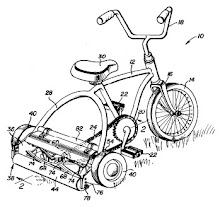There is an alternate reality somewhere in which customers pay the constantly-changing spot price for electricity, smart appliances adjust load to maximize savings under varying realtime conditions, and legions of economists dance the happiest dance that economists are permitted. In our reality, regulators and customers are profoundly ambivalent about even simple pricing experiments like time of use metering, and the use case for consumer load shifting is mostly limited to electric vehicle charging. While stubbornly flat electricity rate plans will disadvantage the demand for smart appliances for the foreseeable future, at least one barrier fell recently: standardization.
With the release of Smart Energy Profile 2.0, there is now a common language for manufacturers to provide functionality for startup, shutdown, monitoring, standby, and other functions. While this is valuable for utility planners, it's harder to make the case that consumers should care. The more affluent consumers who will be able to afford the first generation of smart appliances aren't going to be swayed by a $10 bill credit. They will, however, enjoy the ability to power up their vacation home from their smartphone as they drive so that it is warm and lit-up upon arrival.
An open standard will enable a rich and interoperable ecosystem of third party applications to talk to any device from any manufacturer. Bluetooth's "remote control profile" (AVRCP) enables users to pair a Bose speaker with an Apple iPod. Similarly, the stalled and heavily-siloed home automation controller market could find new opportunities in coordinating a a Nest thermostat and Phillips Hue lights from one place. Getting manufacturers to implement the standard may take some time, but convenience and lifestyle applications will provide more near-term possibilities than the utility's ability to change your air conditioner setpoints on a hot day.
Is this a way out of the chicken-and-egg logjam of device availability and rate plan introduction? I don't see any others on the horizon.



